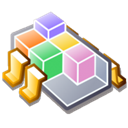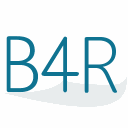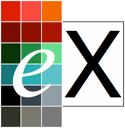Unlocking Your Potential: The Best MINIBLOQ Alternatives for Programming & Robotics
MINIBLOQ, an open-source graphical programming environment designed for Multiplo™, Arduino™, and various physical computing devices and robots, has been a valuable tool for many. However, users often seek MINIBLOQ alternatives for a variety of reasons, including expanded features, broader platform compatibility, or a different development philosophy. If you're looking to explore other powerful and user-friendly options for your embedded computing and robotics projects, you've come to the right place.
Top MINIBLOQ Alternatives
Whether you're a beginner or an experienced developer, these alternatives offer diverse functionalities and communities to support your next project, from simple blinking LEDs to complex robotic systems.

Arduino IDE
Arduino IDE is a cornerstone in the world of open-source electronics prototyping. It's a fantastic MINIBLOQ alternative, offering a flexible and easy-to-use platform based on both hardware and software. It's free and open-source, available on Mac, Windows, Linux, and Web, making it highly accessible. Key features include a community-driven library manager and a robust Integrated Development Environment (IDE).

PlatformIO
PlatformIO is an open-source ecosystem tailored for IoT development, making it a powerful MINIBLOQ alternative, especially for more advanced users. It provides a cross-platform IDE and a unified debugger, alongside features like remote unit testing and firmware updates. PlatformIO is free and open-source, supporting a wide array of platforms including Mac, Windows, Linux, and popular editors like Visual Studio Code and Eclipse. Its features include code completion, continuous integration, and embeddable capabilities.

Ktechlab
KTechLab serves as an excellent MINIBLOQ alternative for those focused on microcontroller and electronics simulation. It's an IDE that supports circuit simulation, program development for microcontrollers, and simulating the programmed devices. This free and open-source software is available on Linux, with its core feature being robust simulation capabilities.

UECIDE
UECIDE, or Universal Embedded Computing IDE, aims to be a generic IDE based on the Arduino IDE, offering broad support for various boards. As a free and open-source MINIBLOQ alternative, it's available on Mac, Windows, and Linux. Its features include binary file conversion, embeddable capabilities, an IDE, and JSON Pretty Print.

B4R
B4R is a completely free development tool designed for native Arduino solutions, making it a compelling MINIBLOQ alternative for Windows users. It offers a simple yet powerful development experience, following the concepts of other B4X tools. Available on Windows, B4R provides a dedicated IDE and is portable.

embedXcode
embedXcode is a template for Xcode, specifically designed to ease development for popular embedded computing boards. It's a freemium MINIBLOQ alternative for Mac users who prefer working within the Xcode environment. It provides an integrated IDE experience within Xcode.

MicroCode Studio
MicroCode Studio is a powerful, visual Integrated Development Environment (IDE) with In-Circuit Debugging (ICD) capabilities, making it a robust MINIBLOQ alternative for Windows users. It's specifically designed for microEngineering products. This free software for Windows offers a comprehensive IDE.

Visual Micro
Visual Micro is an Arduino development plugin for Microsoft Visual Studio, serving as a fully compatible and free MINIBLOQ alternative for Windows users who prefer the Visual Studio environment. It provides a robust debugger and an integrated IDE experience within Visual Studio.

Arduino Studio
Arduino Studio is a newer open-source development environment for the Arduino Programming Language, designed with a more modular approach compared to monolithic IDEs. As a free and open-source MINIBLOQ alternative, it's available on Mac, Windows, and Linux, and is based on Brackets.
Each of these MINIBLOQ alternatives brings unique strengths to the table, from broad platform support and open-source communities to specialized simulation and debugging features. We encourage you to explore these options to find the best fit for your specific development needs and preferences.